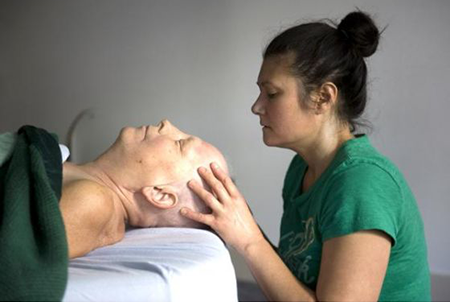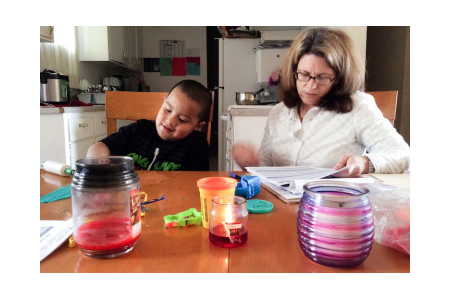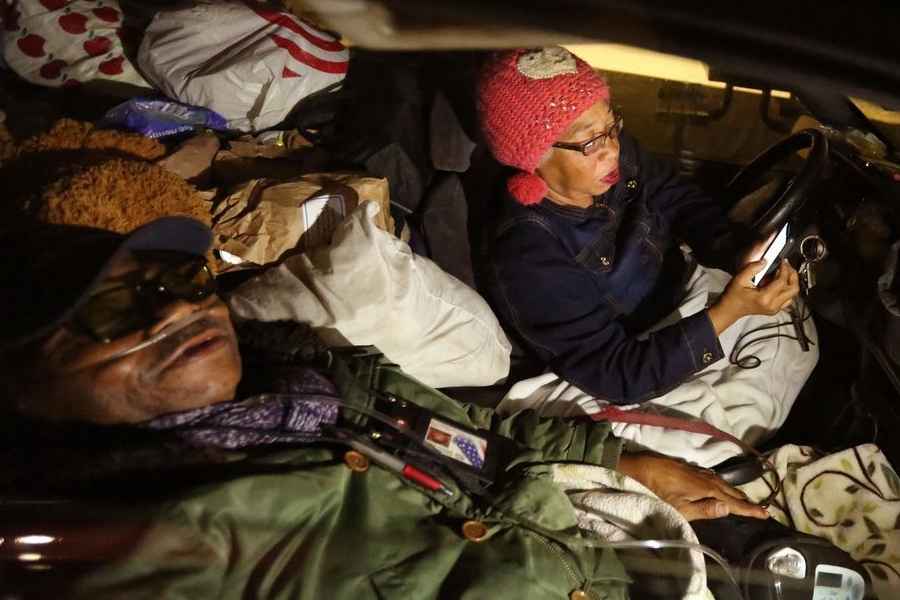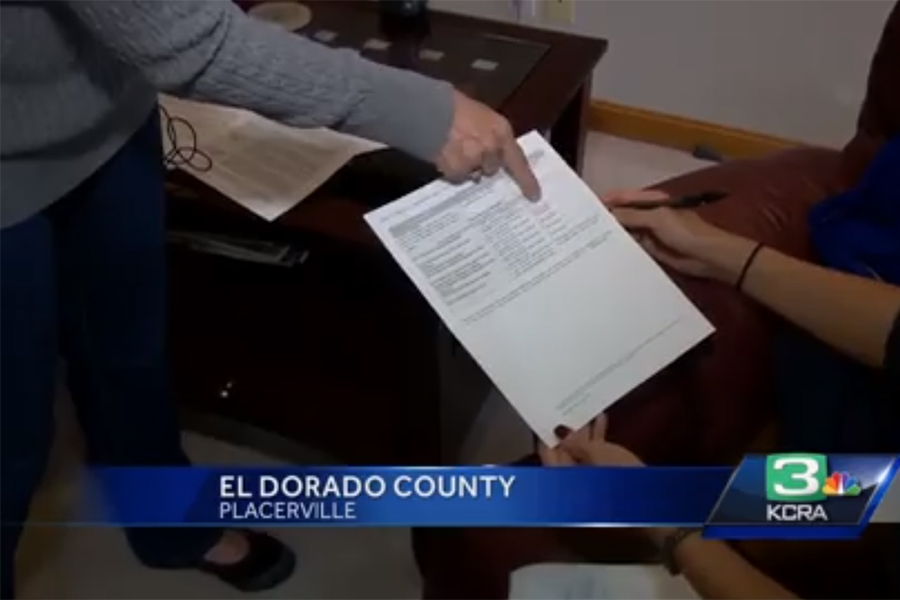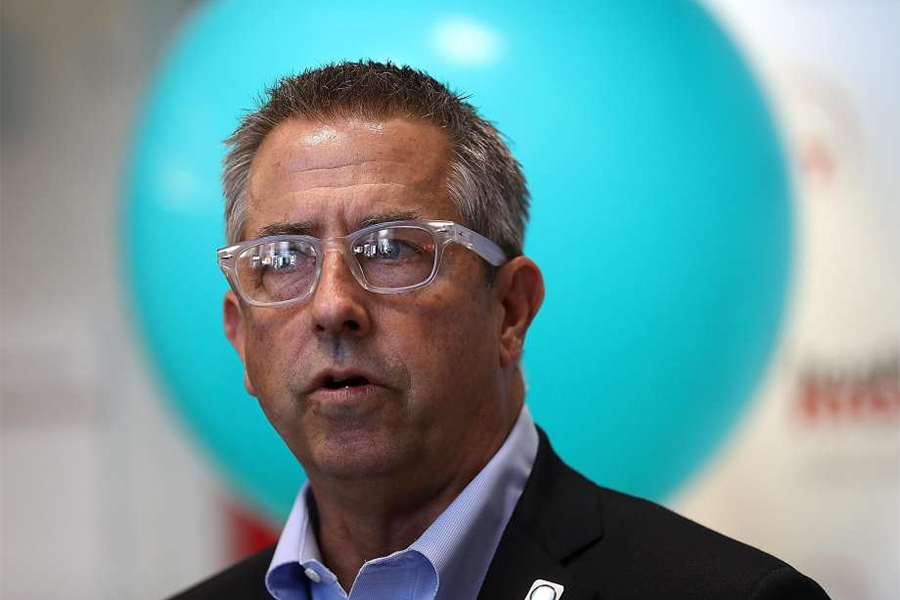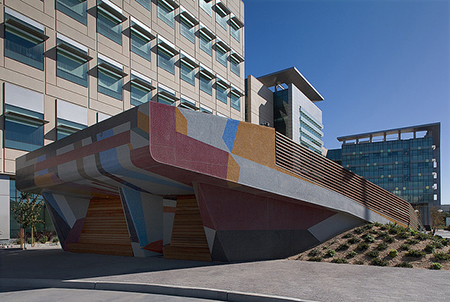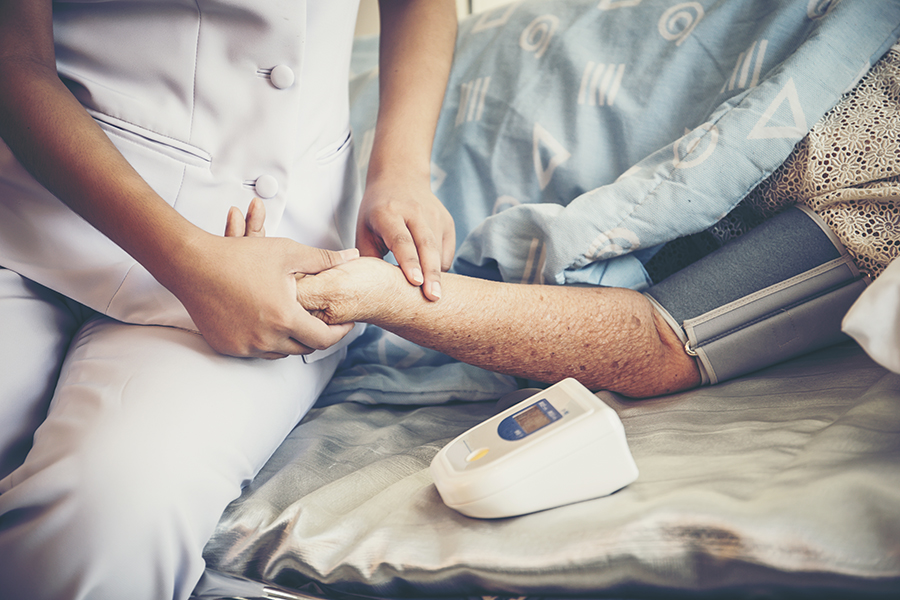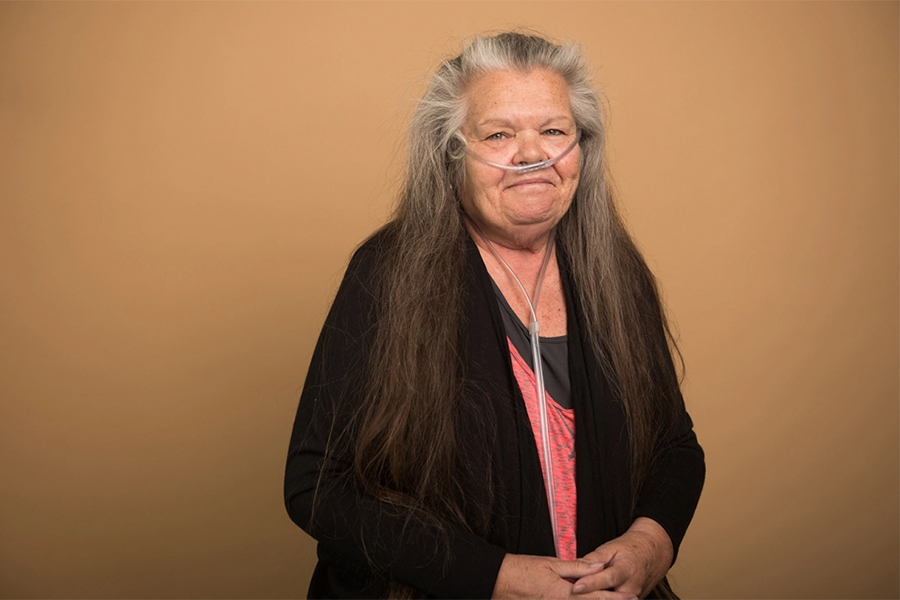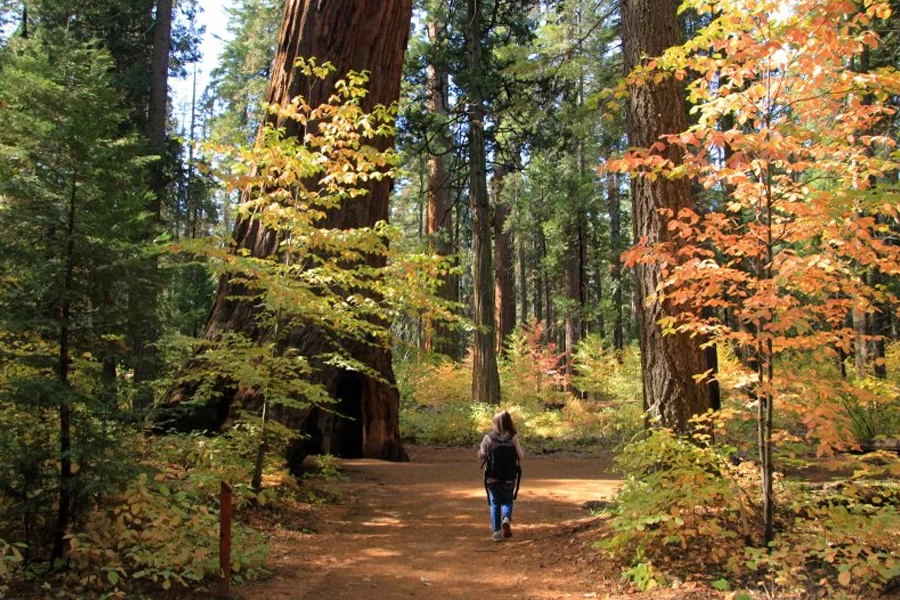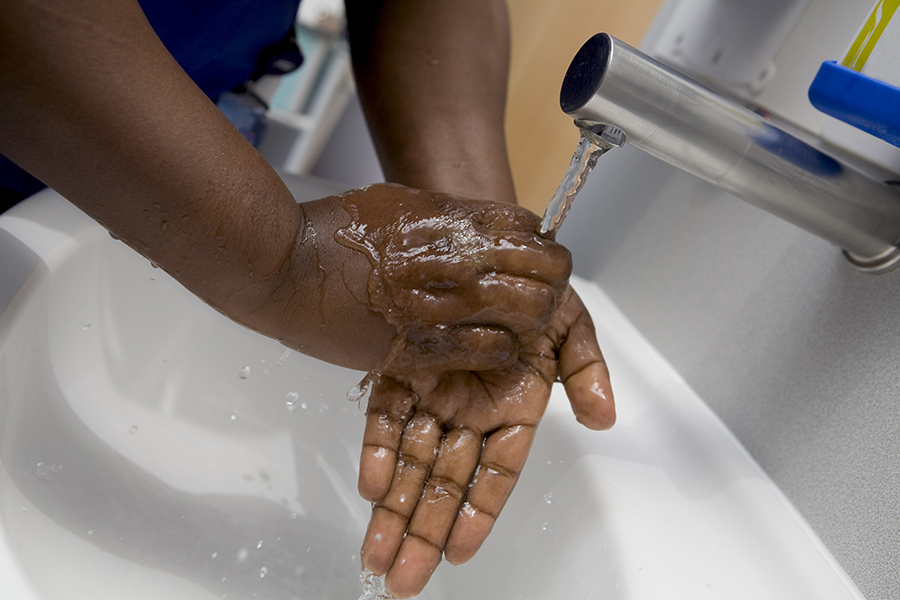By Jenna Chandler for the Orange County Register
Nansea Gratz pulled off her fleece beanie, the kind with little ears, revealing wisps of gray hair on an otherwise bald head. She removed her fuzzy pink socks and asked an attentive massage therapist to touch her feet, because the peripheral nerves there were damaged and weak.
Seventeen months of chemotherapy for stage 4 breast cancer had taken their toll on this 61-year-old’s body from head to toe. But the once-avid swimmer and hiker was about to experience a short, blissful respite.
“Human touch – that’s what’s missing in modern medicine,” Gratz said one Sunday in November at a clinic for massage therapists practicing modified techniques for cancer patients like her. “Doctors do not touch you anymore. They stare at their computers, looking at your scans.”
Once Gratz was gingerly positioned on a massage table, her frail body covered by soft green blankets, Rochelle Leffler got to work. She dropped to her knees, bowed her head, closed her eyes, gently placed her fingertips atop Gratz’s head and prayed for her hands to be healing.
After her prayer, she slowly stroked Gratz’s back, moving her hands over the green blankets.
“Is that pressure OK for you, Nansea?” she asked.






